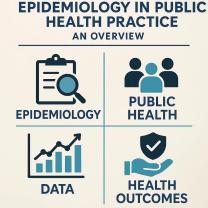Is Ativan bad for the heart?
Ativan, also known by its generic name lorazepam, is a medication commonly prescribed to treat anxiety disorders, insomnia, and certain seizure disorders. It belongs to a class of medications called benzodiazepines. While Ativan can be effective for its intended uses, it is essential to consider its potential impact on the cardiovascular system, especially the heart.
Here are some considerations regarding Ativan and its potential effects on the heart:
Central Nervous System (CNS) Depression:
- Ativan, like other benzodiazepines, has a central nervous system depressant effect. It can cause sedation, relaxation, and a reduction in anxiety. While these effects are generally well-tolerated, they can potentially lead to a decrease in heart rate and blood pressure. Individuals with pre-existing cardiovascular conditions should use Ativan with caution.
Respiratory Depression:
- In some cases, benzodiazepines, including Ativan, can cause respiratory depression, which refers to slowed or shallow breathing. Severe respiratory depression can indirectly affect the cardiovascular system by reducing oxygen levels in the blood, potentially impacting the heart.
Interaction with Other Medications:
- Ativan can interact with other medications that affect the cardiovascular system. For example, combining Ativan with other drugs that depress the central nervous system, such as opioids or alcohol, can increase the risk of respiratory depression and cardiovascular complications.
Hypotension (Low Blood Pressure):
- Ativan has the potential to cause hypotension, especially in susceptible individuals. A sudden drop in blood pressure can affect blood flow to vital organs, including the heart.
Tolerance and Dependence:
- Prolonged use of benzodiazepines can lead to tolerance and dependence. Abrupt discontinuation of these medications can result in withdrawal symptoms, which may include increased heart rate, palpitations, and anxiety. Tapering off the medication under medical supervision is generally recommended.
Individual Variability:
- Individuals may respond differently to Ativan based on factors such as age, overall health, and the presence of pre-existing medical conditions. Some individuals may experience a more significant impact on the cardiovascular system than others.
It's crucial for individuals considering or using Ativan to discuss their medical history, including any cardiovascular conditions, with their healthcare provider. The decision to prescribe Ativan should be made based on a thorough assessment of the individual's overall health and the potential benefits and risks of the medication.
As with any medication, Ativan should be taken only as prescribed by a healthcare professional. If you have concerns about the impact of Ativan on your heart or overall health, it's essential to consult with your healthcare provider for personalized advice and guidance. They can provide information based on your specific medical history and help determine the most appropriate treatment plan for your needs.
1. Potential Side Effects of Ativan on the Heart
Ativan, a brand name for lorazepam, is a benzodiazepine medication commonly prescribed to treat anxiety and insomnia. While it can effectively relieve symptoms, Ativan can also have adverse effects on the heart. Here are some potential side effects of Ativan on the heart:
Slow heart rate (bradycardia): Ativan can slow down the electrical signals that regulate the heart's rhythm, leading to a decrease in heart rate.
Low blood pressure (hypotension): Ativan can dilate blood vessels, causing blood pressure to drop. This can be particularly concerning for individuals with existing low blood pressure or those taking medications that affect blood pressure.
Lightheadedness or dizziness: The combination of a slower heart rate and lower blood pressure can contribute to feelings of lightheadedness or dizziness, especially when standing up quickly.
Fainting (syncope): In severe cases, Ativan can cause fainting due to a significant drop in blood pressure.
2. Long-Term Effects of Ativan on Heart Health
Prolonged use of Ativan, particularly at high doses, can have long-term consequences for heart health. These include:
Increased risk of heart attack: Chronic benzodiazepine use has been linked to a higher risk of heart attack, especially in individuals with underlying cardiovascular conditions.
Exacerbation of heart failure: Ativan may worsen symptoms of heart failure by reducing the heart's pumping ability.
Increased risk of arrhythmias: Long-term Ativan use may increase the risk of irregular heartbeats, such as atrial fibrillation.
3. Alternatives to Ativan that are Safer for the Heart
If you are concerned about the potential side effects of Ativan on your heart, there are safer alternatives to consider. These include:
Non-benzodiazepine anxiety medications: Several non-benzodiazepine medications, such as selective serotonin reuptake inhibitors (SSRIs) and serotonin-norepinephrine reuptake inhibitors (SNRIs), are effective for treating anxiety and have a lower risk of cardiovascular side effects.
Cognitive-behavioral therapy (CBT): CBT is a form of psychotherapy that has been shown to be effective for treating anxiety disorders. It focuses on changing negative thought patterns and behaviors that contribute to anxiety.
Relaxation techniques: Relaxation techniques, such as deep breathing exercises, meditation, and yoga, can help reduce anxiety without the risks associated with medication.
4. Recommendations for Individuals with Heart Conditions
Individuals with existing heart conditions should approach Ativan use with caution due to the potential for adverse effects. If your doctor prescribes Ativan, it is crucial to discuss your heart health and any medications you are taking. Your doctor may recommend a lower dose or suggest alternative treatment options.
5. Precautions for Individuals with Heart Issues Using Ativan
If you have heart problems and are taking Ativan, it is essential to take precautions to minimize the risk of side effects:
Start at a low dose and increase gradually: Begin with the lowest effective dose and increase gradually as needed under your doctor's supervision.
Avoid taking Ativan with other depressants: Do not combine Ativan with alcohol or other medications that depress the central nervous system, as this can increase the risk of side effects.
Monitor your heart rate and blood pressure: Regularly check your heart rate and blood pressure while taking Ativan. If you experience any changes, inform your doctor immediately.
Be cautious when standing up: Stand up slowly and carefully to avoid a sudden drop in blood pressure that could lead to lightheadedness or dizziness.
Report any side effects promptly: If you experience any side effects, such as slow heart rate, low blood pressure, or lightheadedness, report them to your doctor immediately.
Remember, Ativan should be used under the guidance of a healthcare professional who can monitor your response and adjust the dosage or treatment plan as needed.












